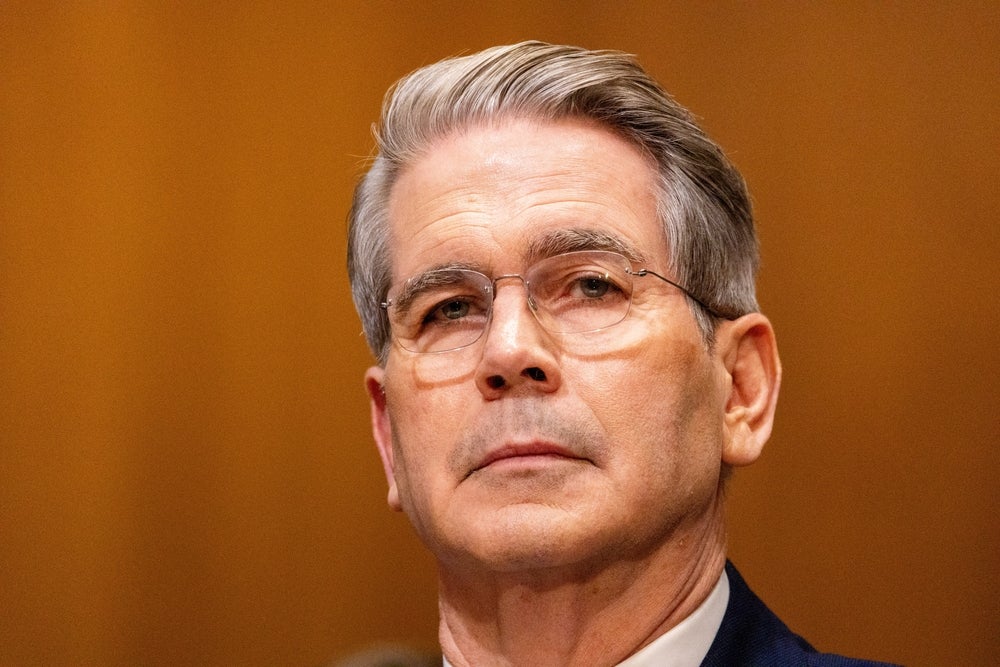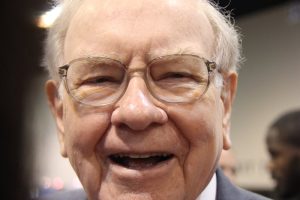
U.S. Treasury Secretary Scott Bessent called for a sweeping overhaul of the International Monetary Fund and World Bank, criticizing China’s export-driven model and urging a global economic reset aligned with the Trump administration’s redefined vision of the Washington Consensus.
“We must make the IMF the IMF again,” Bessent said Wednesday in a panel hosted by the Institute of International Finance during the the Fund’s Spring Meetings in Washington.
Bessent criticized what he described as “mission creep” that’s diverted the fund’s focus toward climate, gender and social programs. He argued that such priorities have “crowded out” the IMF’s core responsibility: ensuring global monetary stability.
Despite growing speculation about the future of the U.S. dollar in a shifting global order, Bessent reaffirmed the administration’s commitment to a strong dollar policy.
“A strong dollar means having the right policies in place to attract capital and inspire confidence,” he said, adding that exchange rates are ultimately set by markets.
“The U.S. will remain the world’s reserve currency for my lifetime—and frankly, I’m not sure anyone else wants the job.”
IMF Policies: Back To Basics?
Bessent called for a wholesale reset of the Bretton Woods institutions, arguing both the IMF and World Bank have strayed from their founding charters.
“These institutions have enduring value, but mission creep has knocked them off course,” he said.
For the IMF, Bessent said its lending should remain temporary and tied to strong reform commitments, pointing to Argentina as an example of progress.
Yet, he stressed that not all countries should expect support: “Sometimes, the IMF needs to say no.”
He also took direct aim at the IMF’s 2024 External Sector Report, calling it symptomatic of a broader reluctance to confront hard truths.
“The IMF has been whistling past the graveyard,” he said.
Bessent urged the fund to call out surplus countries, particularly China, for pursuing policies that distort global trade and currency markets.
“China’s opaque currency practices and unsustainable lending for many decades must be addressed,” he said, emphasizing the need for stronger scrutiny of bilateral lending practices.
China: The Heart Of Global Imbalances
Bessent’s sharpest criticism was reserved for Beijing.
“China’s economic model is built on exporting its way out of trouble. It’s unsustainable—not just for China, but for the world,” he said.
Recent data, Bessent noted, shows China tilting further away from consumption and toward industrial overcapacity.
He accused the country of suppressing wages and encouraging excess savings, creating persistent trade imbalances and undermining global demand.
“These practices contribute to global dependence on U.S. demand to Spur growth. They also lead to a global economy that is weaker and more vulnerable,” Bessent said.
“China must shift toward supporting its own consumers,” he said. “We all know change is needed. Even China knows it.”
World Bank: No Blank Checks
Like the IMF, Bessent said the World Bank must eliminate vague, slogan-driven initiatives and reorient around clear developmental outcomes.
He advocated an “all-of-the-above” approach to energy financing, including lifting restrictions on nuclear and fossil fuels to boost affordable base-load generation in emerging markets.
“Energy abundance sparks economic abundance,” Bessent said, encouraging the bank to move beyond climate finance targets and instead focus on sustainable growth.
He also called for firm graduation timelines for countries like China, which he argued no longer qualify as developing economies and should stop receiving concessional financing.
On Ukraine, Bessent was unequivocal: “No one who financed or supplied the Russian war machine will be eligible for funds earmarked for Ukraine’s reconstruction.”
Read now:
Photo: Shutterstock
© 2025 Benzinga.com. Benzinga does not provide investment advice. All rights reserved.


